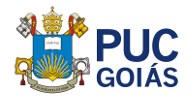Use este identificador para citar ou linkar para este item:
https://repositorio.pucgoias.edu.br/jspui/handle/123456789/5906| Tipo: | Trabalho de Conclusão de Curso |
| Título: | Mídia e Processo Penal: a influência midiática nas decisões judiciais e as garantias do acusado à luz da defensoria pública |
| Autor(es): | Guimarães, Rhayane de Paula Pereira |
| Primeiro Orientador: | Roriz, Míriam Moema de Castro e Silva Machado Mascarenhas |
| metadata.dc.contributor.referee1: | Carvalho, Marina Rúbia Mendonça Lôbo de |
| Resumo: | A presente monografia tem como objetivo discutir a influência midiática nas decisões judiciais e garantias do acusado à luz da Defensoria Pública. A importância do estudo está calcada no fato de que os meios de comunicação de massa como detentores do poder de transmitir informação e formar opinião pública, em um Estado Democrático de Direito, tem se utilizado da noticia de fatos criminosos irregularmente, o que acaba por afetar não somente a percepção que a sociedade tem do Poder Judiciário, como também a opinião do juiz. É inegável o desconforto do julgamento de maneira contrária aquilo que vem sendo explorado como justo pelos órgãos de comunicação. Assim, com base em uma revisão sistemática de literatura pertinente, a pesquisa apresenta o processo histórico da mídia e sua evolução, os princípios, direitos e garantias fundamentais da mídia e do acusado, a fim demonstrar que são bens jurídicos constitucionais, razão pela qual devem ser observados em igualdade. Em seguida, realizou-se a análise da relação entre a mídia e o processo penal, o justo processo versus trial by media e o direito de resposta, com a intenção de revelar os prejuízos advindos da ação de torna o processo em espetáculo, onde o acusado é centro do cenário teatral. Desse modo, o estudo evidencia a escolha que a mídia tem por noticiar os acontecimentos competentes ao Poder Judiciário, especialmente a lide penal, provocando conflitos no desdobramento do processo pelos princípios constitucionais, quais sejam, o direito a proteção à imagem, honra, intimidade, vida privada e a presunção da inocência, previstos no artigo 5º, incisos X e LVII, e o direito à liberdade de imprensa no artigo 5º, inciso IX, da Constituição Federal de 1988. Por último, foi feita uma abordagem a respeito da atuação da Defensoria Pública na proteção dos direitos fundamentais, no que tange ao democrático direito de acesso à justiça e a uma defesa técnica formal e materialmente ativa e eficaz, assegurando o resultado de um processo justo e devidamente legal, demonstrando que nem a liberdade de imprensa e nem mesmo a liberdade de expressão podem se sobrepor de forma absoluta aos direitos e garantias fundamentais. Palavras Chaves: Mídia. Processo Penal. Opinião Pública. Defensoria Pública. |
| Abstract: | This monograph aims to discuss the media influence on judicial decisions and guarantees of the accused in the light of the Public Defender. The importance of the study is based on the fact that the mass media, as holders of the power to transmit information and form public opinion, in a Democratic State of Law, have used the news of criminal facts to raise audience and increase profits, doing it in an arbitrary and sensationalist way, which ends up affecting, in a harmful way, not only the perception that society has of the Judiciary, but also the opinion of the judge. It is undeniable the discomfort in feeling contrary to what has been exploited as fair by the media. Thus, based on a systematic review of relevant literature, the research presents the historical process of the media and its evolution, the fundamental principles, rights and guarantees of the media and the accused, in order to demonstrate that they are constitutional legal assets, which is why must be observed equally. Then, perform the analysis of the relationship between the media and the criminal procedure, the fair process versus judgment by the media and the right of reply, with the intention of revealing the damages arising from the action of turning the process into a spectacle, where the accused is center stage. In this way, the study highlights the choice that the media has to report the relevant events to the Judiciary, especially the criminal dispute, conflicts in the transit of the process by the constitutional principles, namely, the right to protection of the image, honor, intimacy, privacy and the presumption of innocence, provided for in article 5, items X and LVII, and the right to freedom of the press in article 5, item IX, of the 1988 Federal Constitution. Public Defender in the protection of fundamental rights, regarding the democratic right of access to justice and a formal and materially active and effective technical defense, ensuring the result of a fair and duly legal process, demonstrating that neither freedom of the press nor freedom of expression nor any other can be conceived – from the moment it develops on a collective level – with an absolute character. |
| Palavras-chave: | Mídia Processo penal Opinião pública Defensoria pública Media Criminal proceedings Public opinion Public defense |
| CNPq: | CNPQ::CIENCIAS SOCIAIS APLICADAS |
| Idioma: | por |
| País: | Brasil |
| Editor: | Pontifícia Universidade Católica de Goiás |
| Sigla da Instituição: | PUC Goiás |
| metadata.dc.publisher.department: | Escola de Direito, Negócios e Comunicação |
| Tipo de Acesso: | Acesso Aberto |
| URI: | https://repositorio.pucgoias.edu.br/jspui/handle/123456789/5906 |
| Data do documento: | 17-Mai-2023 |
| Aparece nas coleções: | TCC Direito |
Arquivos associados a este item:
| Arquivo | Tamanho | Formato | |
|---|---|---|---|
| TCC II FINALIZADO 1 (1).docx | 190,12 kB | Microsoft Word XML | Visualizar/Abrir |
Os itens no repositório estão protegidos por copyright, com todos os direitos reservados, salvo quando é indicado o contrário.
Ferramentas do administrador
